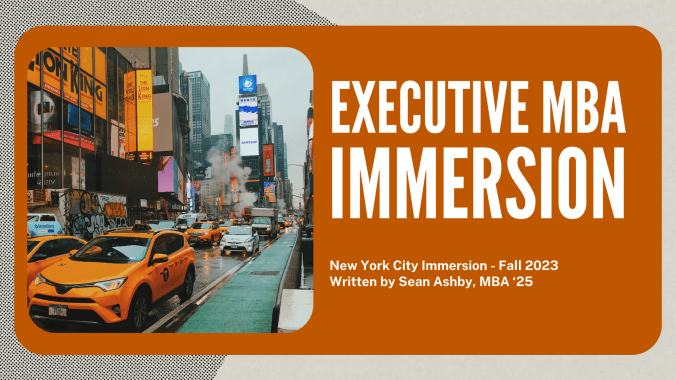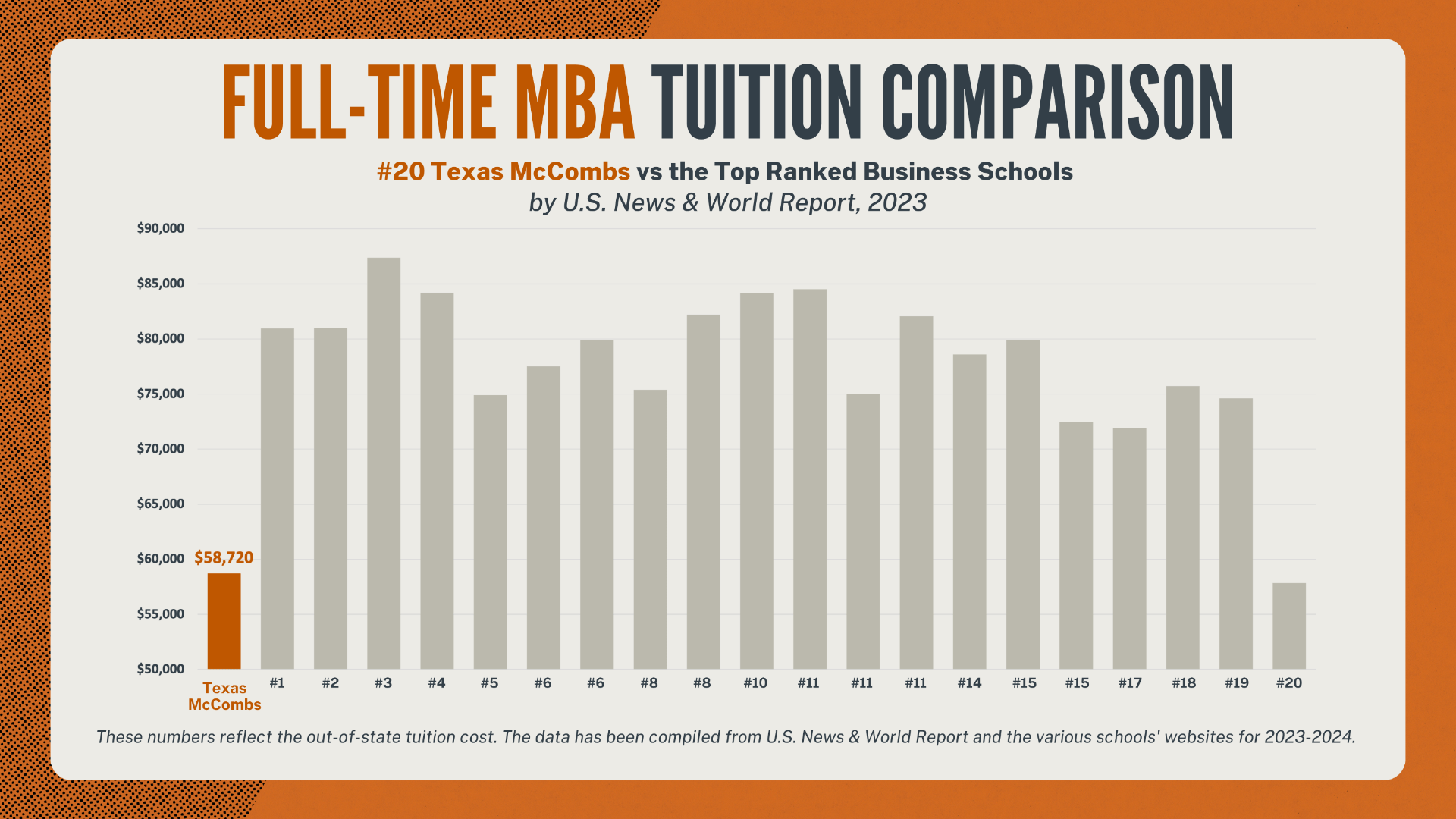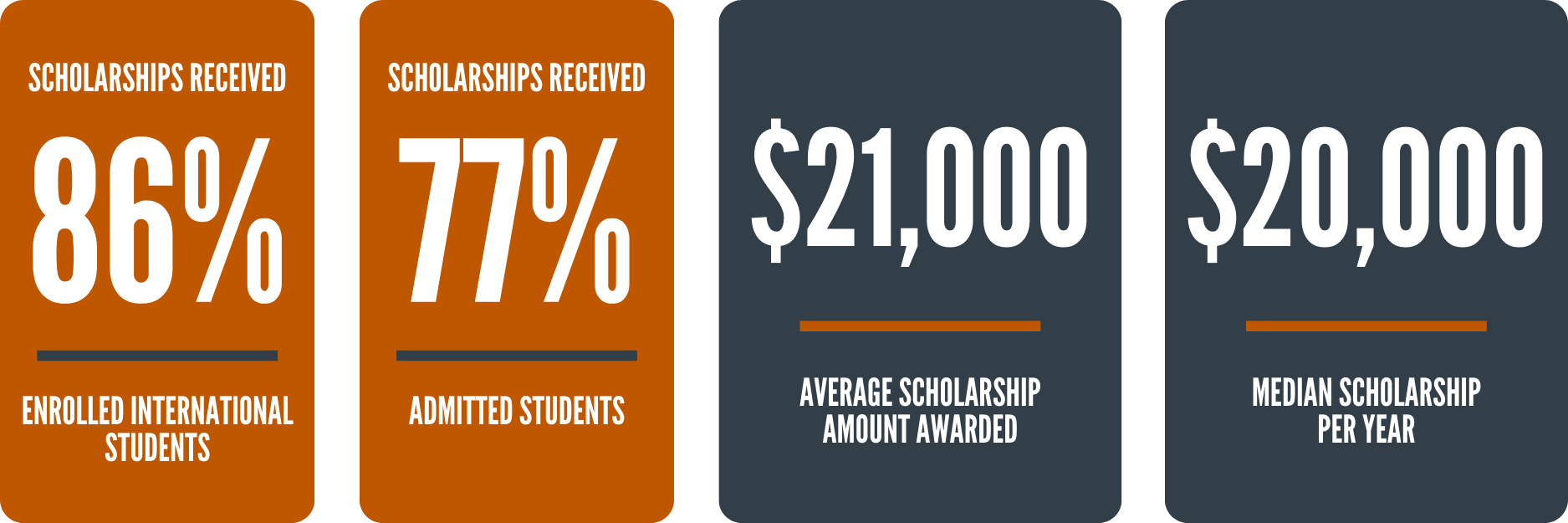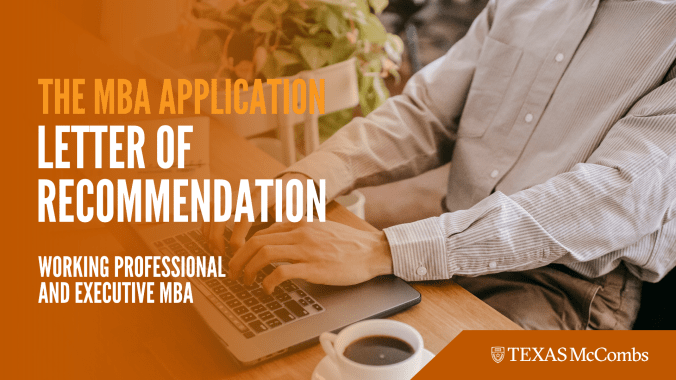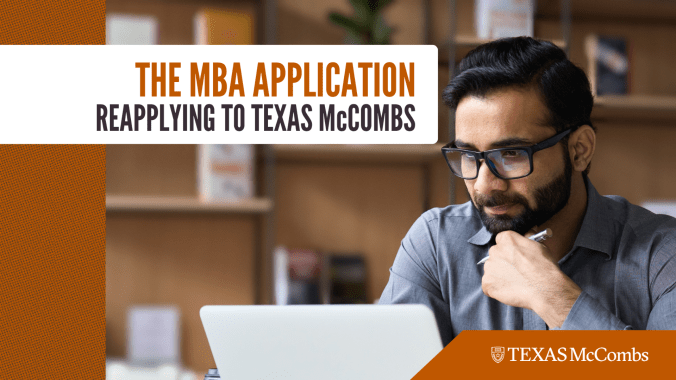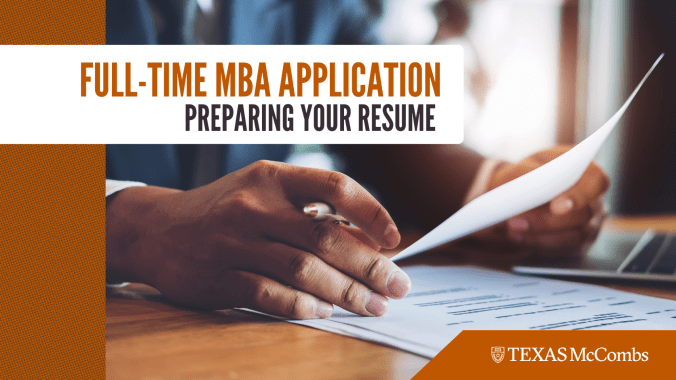This post is written by Sean Ashby, Executive MBA ’25.
Every semester the Executive MBA cohort takes a trip off campus for a long weekend where students get exposure to different industries and participate in rigorous experiential learning opportunities. Last semester we went to New York City where we got to network with alumni, visit Morgan Stanley, and got an executive seminar on thinking on your feet and conveying emotion with a business-focused improv class on Broadway.
Our class arrived Wednesday afternoon, excited for the experiential learning opportunity that awaited us. We all had a family-style Italian dinner at Carmine’s. It was a sight it was to see an entire Executive MBA cohort seated upstairs enjoying some New York City Italian cuisine.
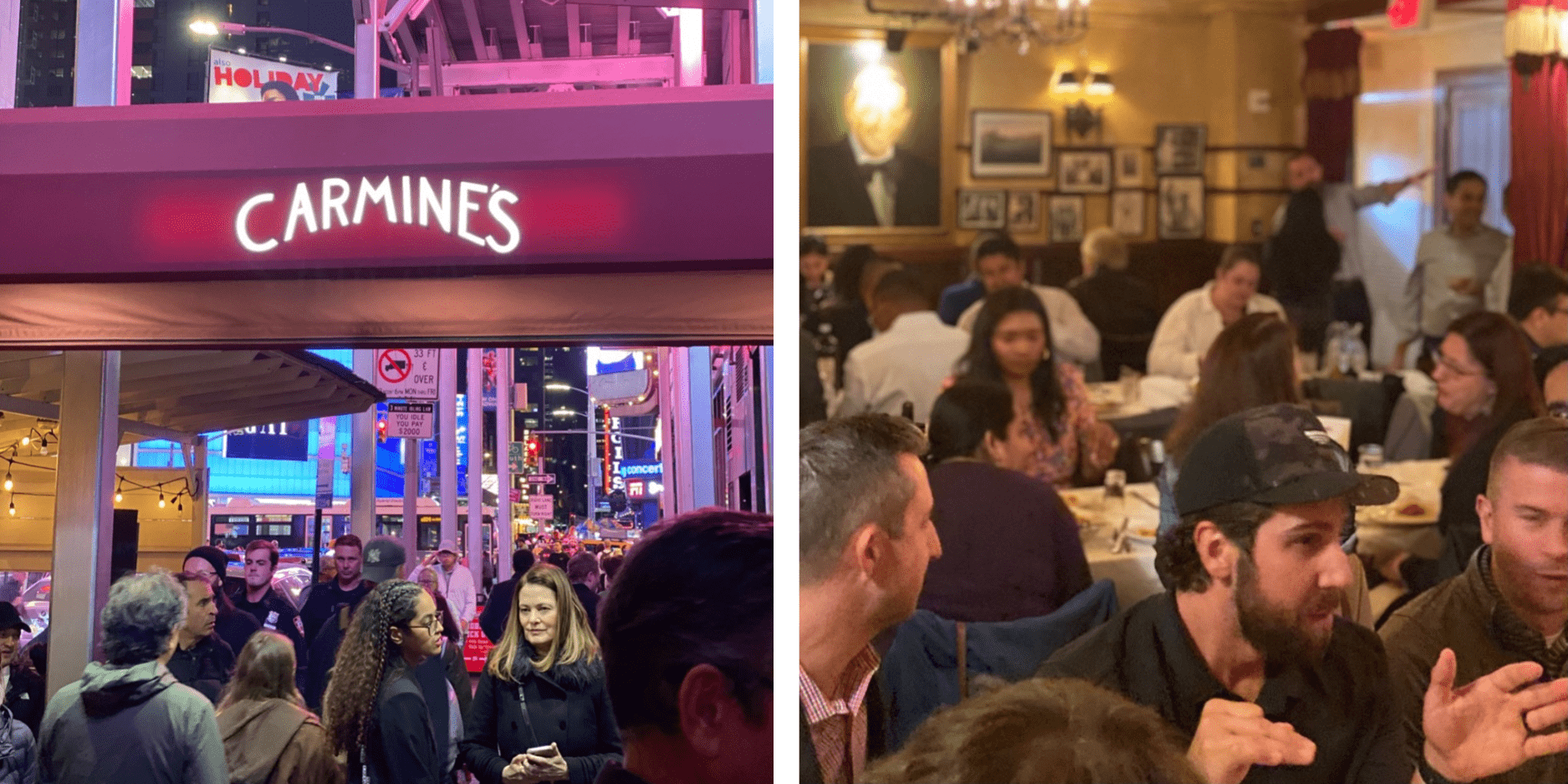
Executive MBA Students out to dinner at Carmine’s in New York City.
Bright and early the very next morning we met with the Head of Strategic Client Solutions and Co-CEO of Macquarie Capital, Miki Edelman. This intimate setting proved to be a blessing as we got to ask questions about Miki’s career and learn the details of what helped take her career to the stratosphere in her industry. Miki not only shared her challenges and successes but gave us all advice on how to make our way into the C-suite.
Laura Correnti, Partner at Giant Spoon, an ad and marketing agency, spoke to us about the importance of branding in the marketplace.
Following the intimate career discussions with two industry insiders we went to Morgan Stanley where we spent the afternoon learning about the operations of the financial giant. From AI and Crypto initiatives to investing strategies for high-net-worth individuals and families, we all got exposure to the teams making the financial world turn.
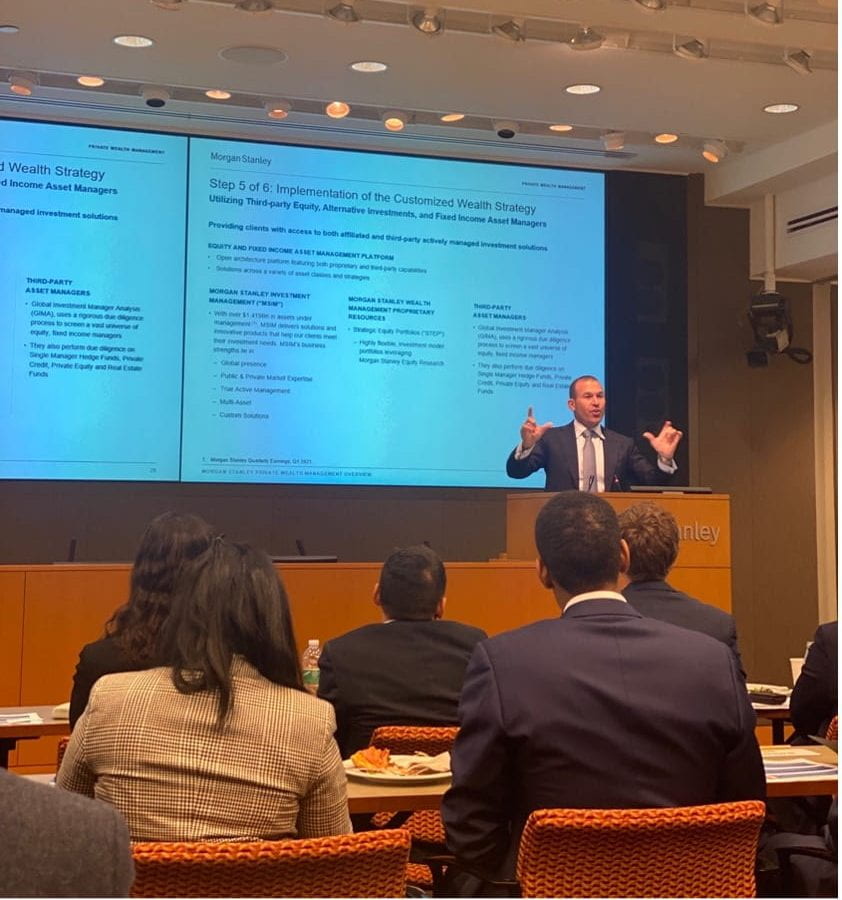
Lecture with Morgan Stanley.
The cohort spent the evening on a rooftop bar off of Broadway meeting alumni and networking over hors d’oeuvres. Meeting alumni in the city was refreshing. We all learned of their post-Executive MBA outcomes and gained new connections.
Despite the late night, we all attended the executive seminar and improv sessions on Broadway led by Professor McDermott. Many of us were anxious at the thought of being on a stage in front of our cohort, but the nerves quickly dissipated as we maneuvered through various exercises. The seminar that we all were once apprehensive for became a crowd favorite by the end. We all learned more about ourselves and our classmates and came away with new skills that were directly transferable to the business world.

Students preform improv on a Dunder Mifflin set.
Professor Luis Martins led us to a close on Friday and Saturday as we discussed the dynamics of power and politics in the corporate setting. As we discussed case studies and strategies to make better decisions Professor Martins instilled upon us the duty we will have as leaders to get it right for our peers and subordinates. “Design trumps management” as we have routinely discovered throughout the course.
An optional guided tour of The Met was the perfect aperitif for an immersion week steeped in leadership development, branding, decision-making, and thinking on your feet. Like the UT motto “What Happens Here Changes the World”, what happened in New York City helped mold us into future leaders and decision-making athletes for the corporate world
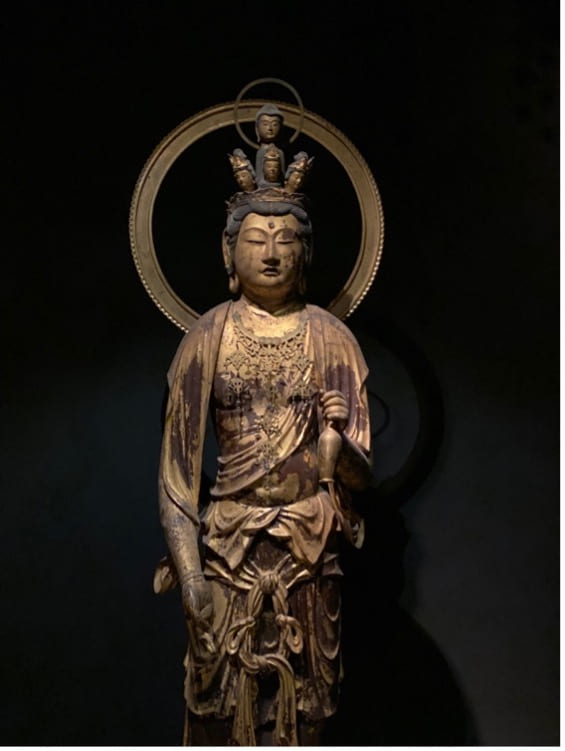
Hook ‘em!
Sean Ashby, EMBA ’25
If you have any questions about Texas McCombs, we’re here to help. Please visit our website for details on applying to each program and follow us on Instagram for an inside look into the Texas McCombs MBA.
Good luck and Hook ’em!
